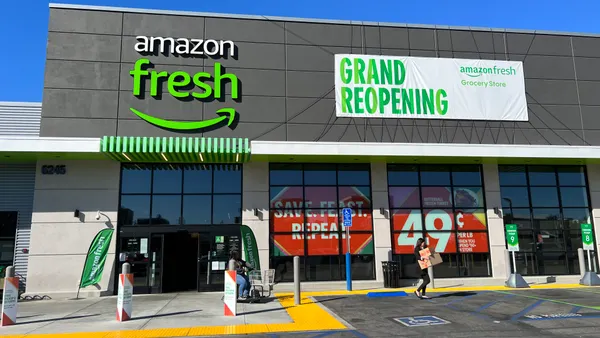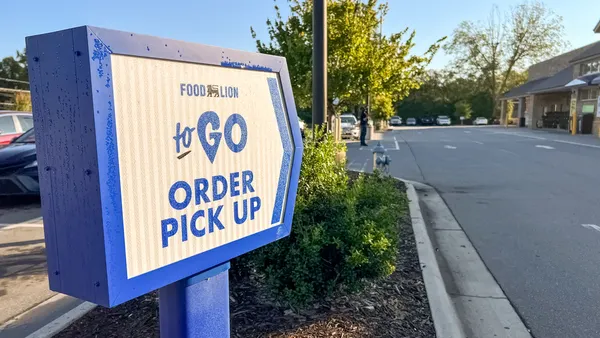Dive Brief:
- Farm-to-table food delivery service and produce distributor GrubMarket raised $90 million in new funding in a Series D funding round in 2020, the company announced last Tuesday.
- GrubMarket's new injection of capital comes as the service plans to expand to major metropolitan markets in North America beyond its existing operations in California, New York, Washington, Texas, Michigan and Massachusetts. CEO Mike Xu said that GrubMarket aims to scale up to an annual recurring revenue of $1 billion within the next 12 months.
- With its eventual target of $100 billion in annual sales and investment from deep-pocketed investors including BlackRock, GrubMarket expects to make itself a permanent fixture in the food delivery landscape, though it faces tough competition from both traditional grocers and artificial intelligence-powered startups.
Dive Insight:
In its pre-IPO stage, GrubMarket is seeing huge oversubscription, to the point where the company had to make “quite some efforts to keep this round under $100 million,” Xu said in the press release.
Just in 2020, the service expanded to four new states. Its series of acquisitions has enabled the service to rapidly advance its technological resources and its consumer base, as well as its products sourced from small-scale farms and organic suppliers. According to Xu, the service is already a “major food provider” in the San Francisco Bay Area and elsewhere in California, where Whole Foods is one of its largest retail customers.
Founded in 2014, the delivery service has taken a multi-pronged approach to its company, having also established itself as a produce supplier for restaurants and retailers including numerous major grocery chains such as Albertsons, Kroger and Sprouts Farmers Market. And lately, GrubMarket has been paying particular attention to its vertical software, WholesaleWare, which has grown more than 1,000% in recent months and now manages hundreds of millions of dollars in food wholesale activities annually.
GrubMarket's profitability has only grown more secure in 2020 as consumers turned to online food ordering during the pandemic, growing at 100% over 2019, according to TechCrunch. However, it faces increasing competition from all sides of the industry, as grocers and technology companies alike have innovated their models to adapt to the delivery-friendly consumer landscape.
Online grocer Imperfect Foods, driverless food delivery startup Starship and Thistle, a prepared meals delivery service, have all announced successful funding rounds so far this year, with investors in the sector poised to take advantage of changed shopping habits during the COVID-19 health crisis.












